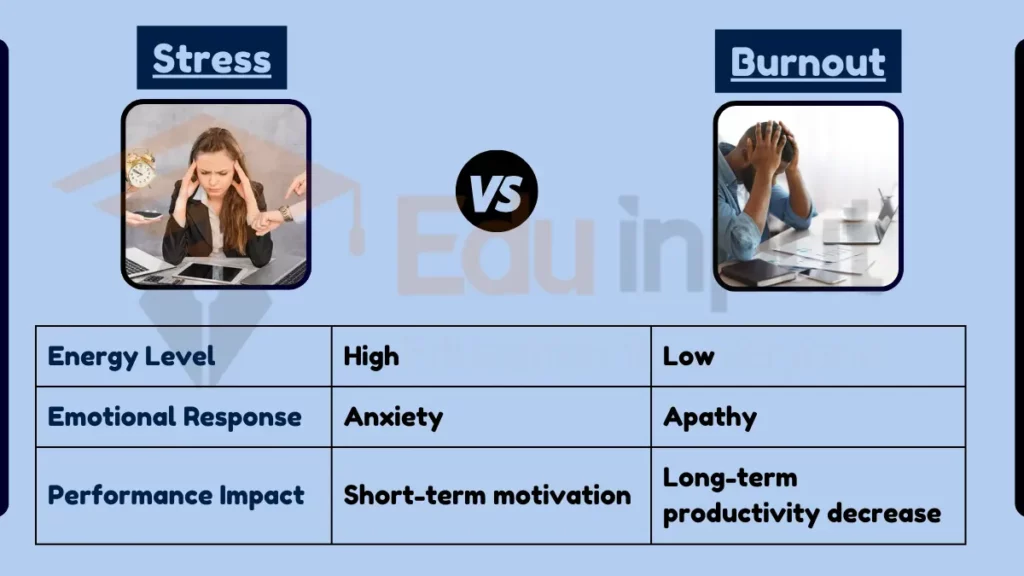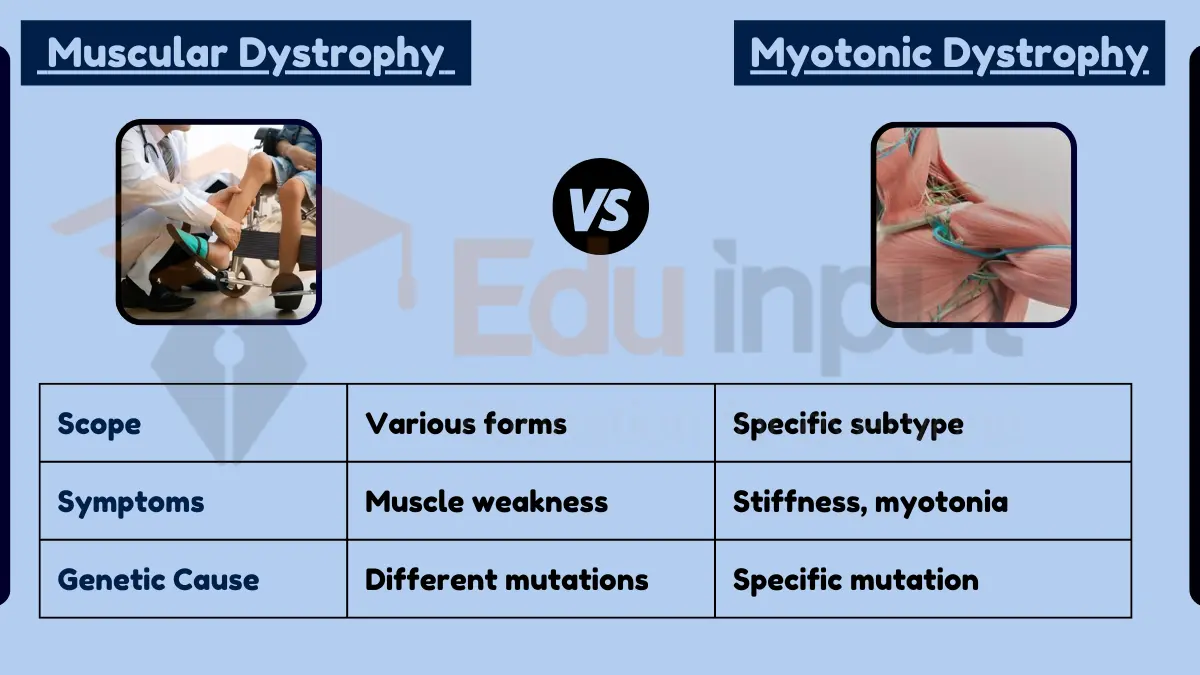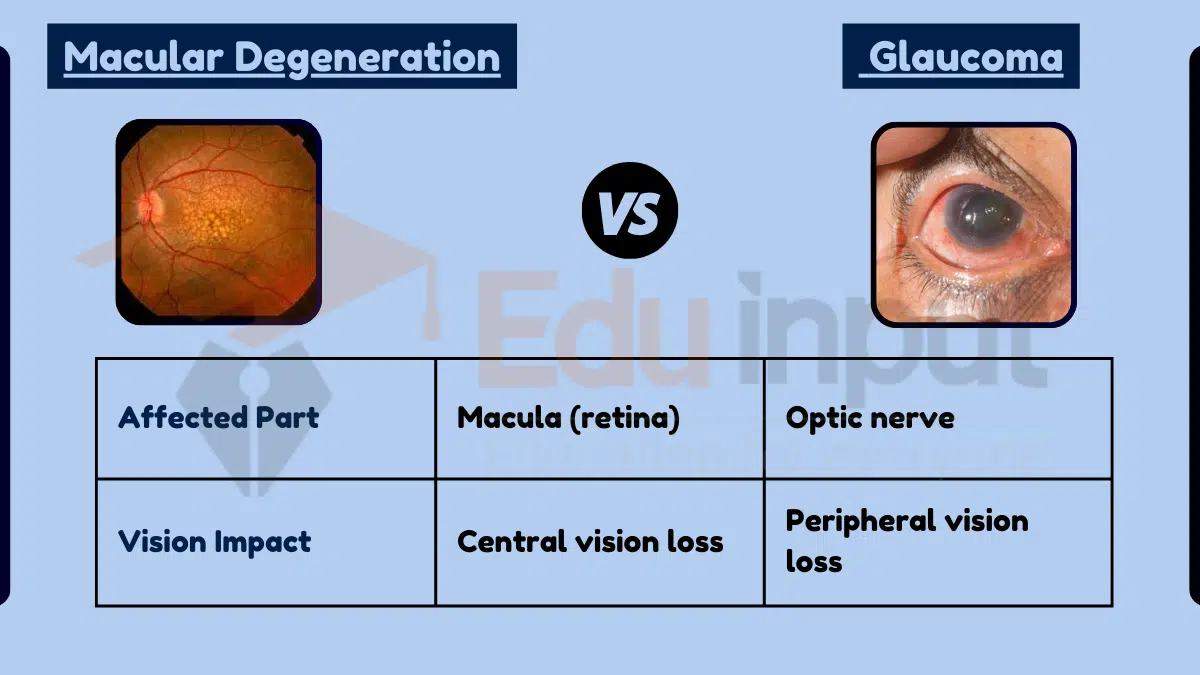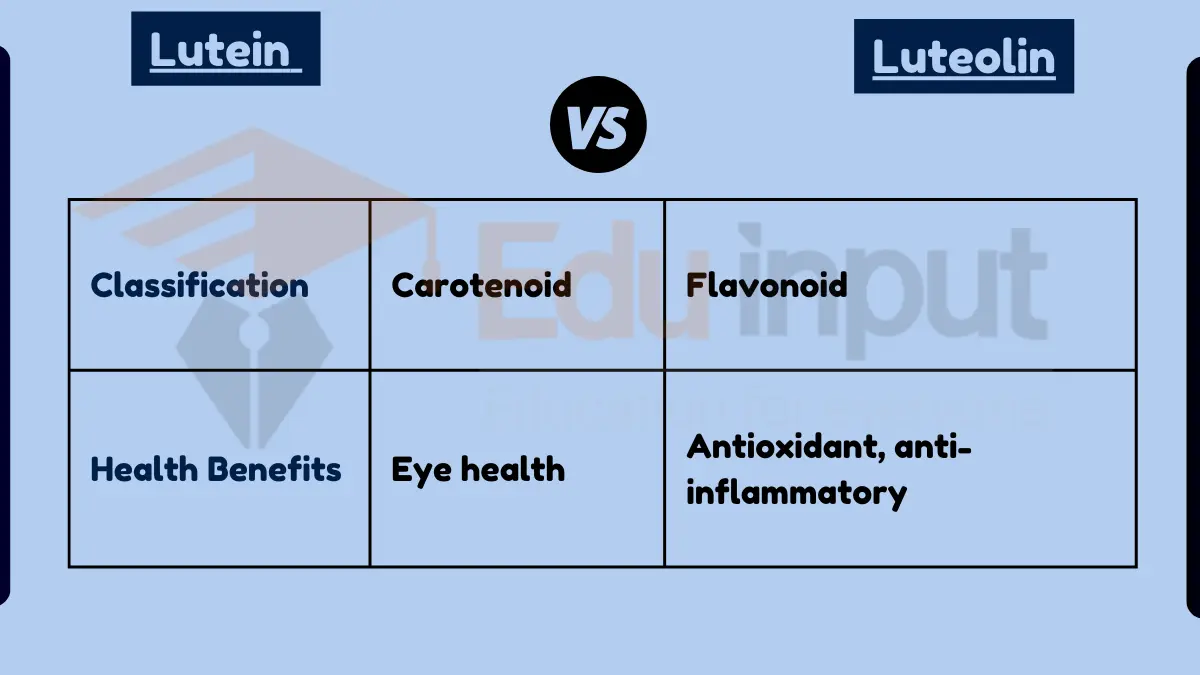Difference Between Stress and Burnout
Key Difference
Stress and burnout are related but distinct concepts. Stress typically refers to the body’s response to challenging or demanding circumstances, often characterized by high energy and anxiety levels. Burnout, however, is a state of emotional, mental, and physical exhaustion caused by prolonged and excessive stress. It is marked by feelings of overwhelming exhaustion, cynicism, detachment, and a sense of ineffectiveness.

Comparative Analysis
- Intensity and Energy Level:
- Stress: High energy, may feel overwhelmed.
- Burnout: Low energy, feeling drained.
- Emotional Response:
- Stress: Anxiety and urgency.
- Burnout: Detachment and apathy.
- Impact on Performance:
- Stress: Can be motivating in the short term.
- Burnout: Leads to decreased productivity and disillusionment.
- Duration:
- Stress: Often acute or short-term.
- Burnout: Long-term, accumulates over time.
- Recovery:
- Stress: Eased by relaxation and management strategies.
- Burnout: Requires significant changes, often lifestyle or work-related.
Table Summary of Stress and Burnout
| Feature | Stress | Burnout |
|---|---|---|
| Energy Level | High | Low |
| Emotional Response | Anxiety | Apathy |
| Performance Impact | Short-term motivation | Long-term productivity decrease |
| Duration | Short-term | Long-term |
| Recovery | Management strategies | Significant life changes |
Stress and burnout differ in their intensity, duration, and impact on an individual’s emotional and physical well-being, requiring different approaches for management and recovery.







Leave a Reply